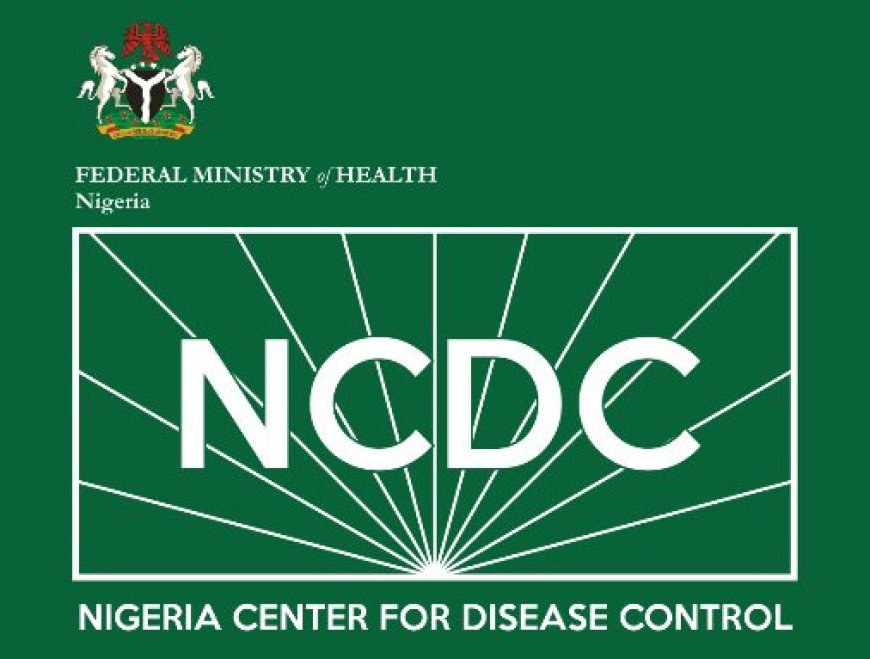NCDC records 832 Lassa fever, Mpox cases, 135 deaths

The Director General of the Nigeria Centre for Disease Control and Prevention, Dr Jide Idris, on Friday said the country has recorded 832 confirmed cases of Lassa fever and Mpox.
Dr Idris, who said this at the national health security press briefing in Abuja, noted that the country also recorded 135 deaths from the diseases so far in 2025.
He, however, said the agency remains steadfast in its mandate to protect public health by providing timely, transparent, and accurate health information.
He stated that the agency, in collaboration with State Health Authorities and Partners, continues to monitor the diseases through national surveillance platforms while proactively supporting affected states with timely interventions.
Cumulatively, as of epidemiological week 16, the country has reported 4,253 suspected cases of Lassa fever, 696 confirmed cases, and 132 deaths. The overall Case Fatality Rate of 19.0 per cent,” he disclosed.
He highlighted that there is a steady decline in Lassa fever cases in epidemiological week 16, ending April 20, 2025.
“These improvements reflect the positive impact of ongoing surveillance, treatment, and community engagement efforts. However, the risk remains high, especially in endemic areas. So, we must intensify our efforts,” he added.
Speaking on cerebrospinal meningitis, he noted that as of week 14, the data for CSM showed a steady decline in new cases and fatalities over the past three weeks, signaling that control measures are beginning to have an impact.
“Surveillance, treatment, and vaccination strategies are being dynamically adapted to emerging data, with a strong focus on community trust and early care seeking.
So while the outbreak remains serious, national and sub-national coordination, improved preparedness, and vaccination efforts are turning the tide.
“The response will be sustained until full containment is achieved and state-level ownership of the CSM Incident Action Plan is realized,” he said.
The NCDC boss revealed that since the beginning of 2025, Nigeria has continued to monitor and respond to Mpox outbreaks across the country through coordinated national surveillance efforts.
“From week one to Week 16 of 2025, a total of 723 suspected cases of Mpox were reported across 35 states and the Federal Capital Territory. Of these, 136 cases were laboratory-confirmed, spanning 27 states and the Federal Capital Territory.
Unfortunately, three Mpox-related deaths were recorded during this period: two in Week 10 from Abia and Ebonyi states, and one recently in Rivers State, involving a young male with advanced HIV and Tuberculosis. This brings the national CFR for 2025 to 2.2 per cent.
“The epidemic curve for the period demonstrates several peaks in both suspected and confirmed Mpox cases, highlighting a pattern of persistent transmission. The geographic distribution map for this period shows that nearly all states have reported suspected cases, with a significant concentration of confirmed cases occurring in the southern and central regions of the country,” he said.
He emphasized that Mpox is affecting individuals across a wide range of professions, including students, traders, civil servants, and healthcare workers, highlighting the risk of both community and healthcare-associated (nosocomial) transmission, especially in high-contact settings.
He noted that the appropriate comprehensive and multi-tiered response strategy is currently in place, including the following key interventions for the diseases.
“The activation of the Emergency Operation Centre continues to provide both national and sub-national leadership through weekly review meetings with hotspot states.
“The National Rapid Response Teams have been deployed to hot spot states to strengthen the response capacity of local health authorities. Essential medicines, intravenous fluids, personal protective equipment, laboratory consumables, and other necessary materials have been strategically distributed to / prepositioned in states to ensure timely access during case surges.
“The capacity of State laboratories has been strengthened to conduct appropriate testing and ship samples for confirmation to the NCDC National Reference Laboratory in Abuja and the Central Public Health Laboratory in Yaba, Lagos,” Idris noted.
He further stated that five more mpox laboratories have been optimized in five geopolitical zones – Bauchi, Kano, Cross River, Rivers & Enugu states; and mentorship is being provided to improve sample management, handling, and result reporting.
“Healthcare workers continue to receive targeted training in case management, including infection prevention and control, as well as hands-on workshops on lumbar puncture and CSM care best practices. Community outreach is being reinforced through radio and TV jingles, distribution of social and behavioural change communication materials, and media sensitization for stigma-free reporting.
Daily coordination with state health teams ensures timely adaptation of messages based on community feedback. Epidemiological data—including age distribution, geographical trends, and case incidence—is closely monitored to guide timely vaccination efforts.
A mortality review meeting is being convened on the mpox deaths in Abia, Ebonyi, and Rivers States. These layered interventions aim to strengthen Nigeria’s capacity to respond swiftly and effectively to outbreaks, protect vulnerable populations, and reduce mortality,” he concluded.

 admin
admin 


